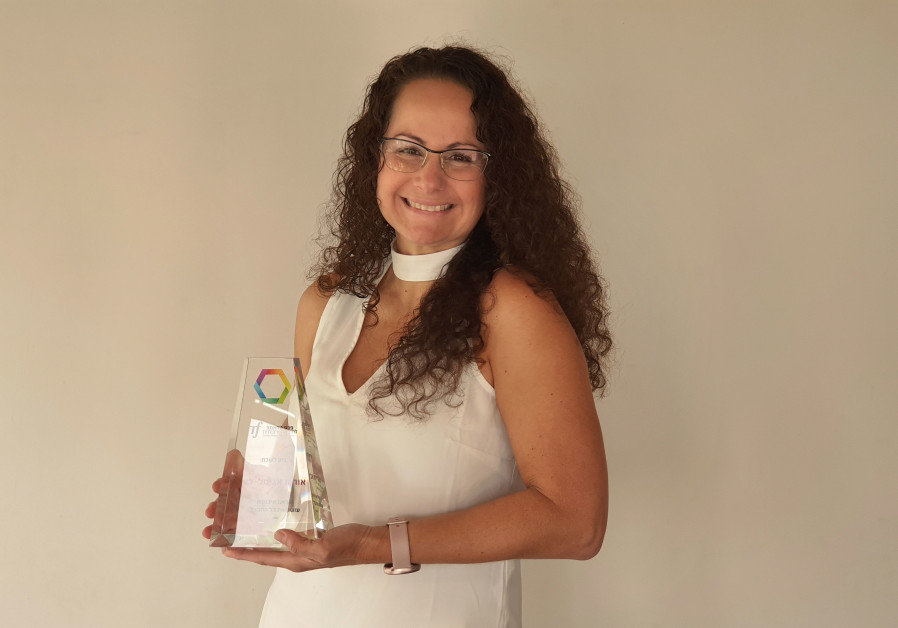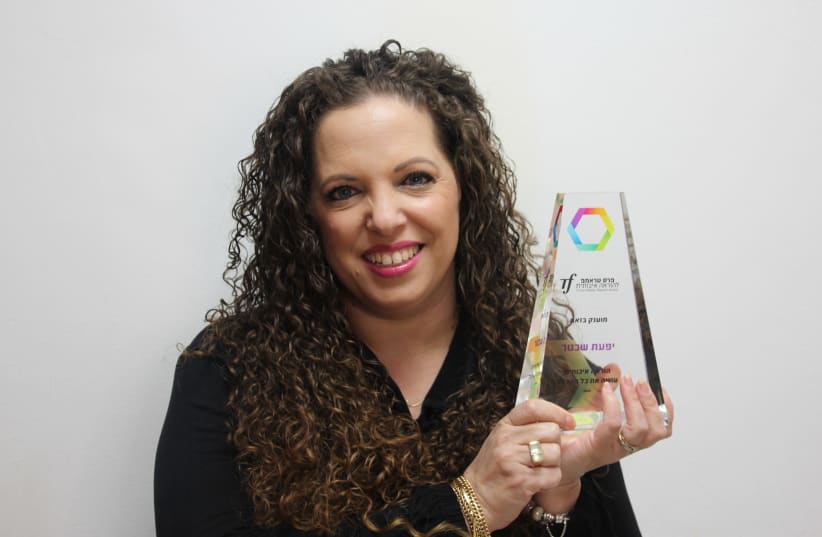Many have expressed doubt in the continued ability of children, teachers, and parents to successfully maintain the current model of distance learning that has characterized the education system this past year.
And while it seems like Israel’s education system is gradually starting to reopen, the process will take time, with grades 7-10 only expected to return to schools on March 9, and only if infection rates continue to drop.
But not everyone agrees that learning from a distance is necessarily a bad thing. Some have even found ways of taking advantage of the circumstances to reach out to students in new ways, while providing students with tools that were not always available in pre-coronavirus classrooms.
Last week, three Israeli teachers were chosen among thousands as winners of the prestigious Trump Master Teacher Award for 2020, proving that quality education is not conditioned by circumstances, but by a personal decision to stay committed to students.
“For me, teaching is a creation – providing students with something new,” says Yifat Schechter, a math teacher at Rodman Junior High in Kiryat Yam, and one of the winners. Schechter, who has been teaching for 21 years, says that distance learning is not as bad as people make it to be. In fact, she believes that learning through Zoom can provide students with practical tools, sometimes lacking in the traditional educational approach.
While the field of techno-pedagogy – referring to the integration of technological tools in teaching and learning methods – has been around for years, Schechter believes that the coronavirus pandemic has created the opportunity for teachers “to pioneer its implementation” and through it to promote important capabilities such as self-responsibility, multi-tasking and online research – “all skills that students today receive much more of than they did before coronavirus.”
At the end of the day, there will always be those who do more and those who choose to do less – the coronavirus did not create that, Schechter said. “It’s all about deciding to put in the effort.”
For Schechter, that means creating a safe learning environment for students by constantly creating dialogue and a pleasant learning environment. “Mistakes play a big part in my classes. I dedicate time for them. Students know that mistakes are okay, as long as we understand and talk about them.” In that sense, learning from home has allowed students to feel more comfortable and less afraid to make mistakes, which according to Schechter has limited the taboo surrounding mistakes, allowing students to benefit from them.
Schechter also says that creativity must play a major role if teachers are to keep their students interested. She often integrates practical issues into her classes. For example, for teaching her students about geometric series, she used the reproduction rate of COVID-19 as an example, and sent her students to explore the idea themselves, simultaneously keeping things relevant and promoting her students’ curiosity.
Dana Avrian, a science teacher at Borochov Junior High in Givatayim, found creative ways to teach her students chemistry while at home, and like Schechter, found that integrating her lessons into every-day ideas that her students can relate to, makes the educational process more effective.

Avrian came up with what she calls “online escape rooms,” meant to create fun and challenging experiences for her students while exploring complex ideas.
One of those, simply structured as a Google Form, presents students with an unprecedented opportunity: “You have the opportunity of becoming scientists and helping the world combat the virus! […] after completing this mission you will learn the basics of chemistry and will be able to keep learning how to save humanity!”
Avrian says that implementing new learning techniques requires courage but can lead to incredible results and even encourage students to take initiatives themselves.
“I often ask students who just finished learning a certain subject to teach it to others and find creative ways to do so,” Avrian said, noting that it “usually stimulates interest and willingness among students.”
Both Avrian’s and Schechter’s comments correspond with those of Orit Avital-Levi, a math teacher at the Sulam Tsor Regional High School in Kibbutz Gesher Haziv and the third winner of the prize.
Avital-Levi believes that distance learning has also made working in groups more effective, as Zoom easily allows students to convene in small working groups with less distractions.

“In a sense, coronavirus has been a blessing. We can do things that we didn’t think were possible. I feel like I manage to do much more with 45 minutes on Zoom than I ever could in a classroom,” Avital-Levi said, adding that Zoom has actually helped improve Interpersonal communication among her students.
Schechter, Avrian and Avital-Levi have proven that distance learning can be significant, despite what many may think. Their dedication and proven success demand a reevaluation of the benefits that new forms of teaching can provide young students.
In an online ceremony held last Thursday, Education Minister Yoav Gallant congratulated the three exceptional teachers. “You have taken upon yourselves a very important responsibility: Teaching the future generation, and you’re doing so, according to all accounts, in the best way possible,” Gallant said. “I can only wish that all Israeli students have teachers like you.”
The Trump Foundation has been awarding exceptional teachers in the fields of mathematics and sciences every year since 2012. Since 2019, the foundation has been awarding junior-high teachers in order to draw attention to this important educational phase, which is usually overlooked.
